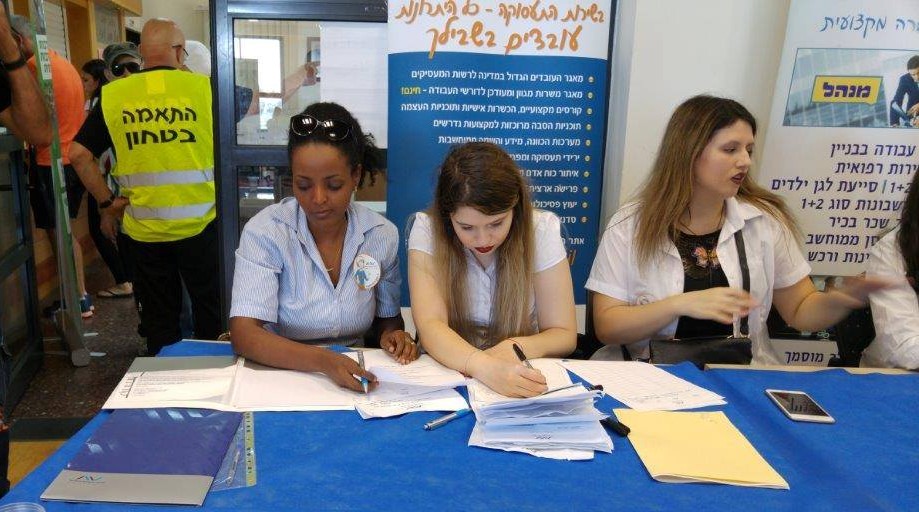As Israel’s national economy struggles to gradually return to some semblance of “normal” following months of strict government restrictions to enforce social distancing, new data suggests that the Arab-Palestinian national minority in the country may be hit hardest in the latter stages of the coronavirus crisis.
Among more than a million new unemployment benefit applicants during March and April, approximately 190,000 (19%) were Arab citizens, according to Israel’s Employment Service. While the figure remains below their overall share of the Israeli population a worrying trend was identified during this two-month period. In March, approximately 17% of new applicants for unemployment benefits were Arabs, but their share among new applicants jumped to some 25% in April.
While the Employment Service believes the significant increase may be explained by the concentration of Arab workers in certain industries that were impacted at a later stage, it also suggests that different population groups suffered asymmetrical harm at different stages of the outbreak.
A major difference is identified between the gender of Arabs and Jewish unemployment benefit applicants. Among Arabs, 58% of new applicants in March and April were men and 42% were women. The share is reversed among Jewish applicants – 42% were men, and 59% were women. The difference between the sectors is largely attributed to the relatively low participation of Arab women in the workforce.
Data published by Israel’s Employment Service also showed that young Arab men were most affected by dramatic changes in the workforce. Among all new Arab-Israeli claimants, 51% were aged 20-34, compared to 43% prior to the coronavirus outbreak in January and February. A more modest increase was identified among Jewish claimants of the same age, rising from 40% before the outbreak to 44% during March and April.
Employment Service data also showed an especially high rate of income support claims made to the National Insurance Institute from among the Negev’s Arab-Bedouin population. Some 12% of Arab-Bedouins living in the south of the country claimed income support during March and April, compared to 5% of the wider Arab community and 3.5% among the general population.
A mid-2019 report published by the Labor Ministry noted that employment among ultra-Orthodox women and Arab men had increased significantly in recent years, with approximately 76% of both population groups now employed, just below Israel’s then-national average of 78%. “Arab women and ultra-Orthodox men remained the two population groups struggling to integrate into the Israeli workforce,” the report stated. Only 38% of Arab women and 50% of ultra-Orthodox men were employed.
Related:



